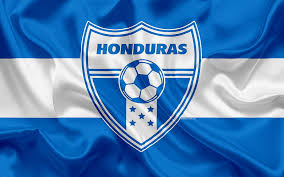In recent years, Honduras FC has captured the attention of football fans across Central America and beyond. As the club continues its impressive ascent, it is quickly establishing itself as a formidable competitor within the region’s vibrant football scene. With a rich history, a passionate fanbase, and a commitment to nurturing local talent, Honduras FC stands as a shining example of what dedicated leadership, community engagement, and sporting ambition can achieve. This article delves deeply into the evolution, current status, and future prospects of Honduras FC, exploring how this team is reshaping perceptions of Honduran football on the international stage.
The Historical Foundations of Honduras FC
The journey of any great football club begins with its origins, and Honduras FC is no exception. Understanding where the club comes from and the context in which it was founded provides invaluable insights into its philosophy, values, and trajectory 78win.soccer.
Early Beginnings and Founding Vision
Honduras FC traces its roots back to a time when football was still forging its identity in Honduras. The club was conceived by a group of determined local sports enthusiasts who envisioned creating a competitive team that could represent not just their city, but also the nation’s football aspirations on a larger scale.
From humble beginnings, Honduras FC set out to differentiate itself by focusing on youth development and community involvement. Unlike some clubs that prioritized short-term success through foreign imports, Honduras FC made a conscious decision to build from within. This approach, although riskier and slower, laid a solid foundation for long-term sustainability.
The founders’ vision extended beyond the pitch. They aimed to make the club an integral part of local culture, fostering a sense of pride and unity among supporters. This philosophy continues to influence the club’s operations, fueling both its resilience and popularity.
Trials, Triumphs, and Turning Points
No football club’s story is without challenges, and Honduras FC faced its share of trials during its formative years. Financial constraints, limited infrastructure, and fierce competition from better-established rivals frequently threatened to derail its progress.
However, these obstacles only served to strengthen the club’s resolve. Through strategic partnerships with local businesses and relentless advocacy for municipal support, Honduras FC gradually improved its facilities and attracted more promising players. Key victories in regional tournaments marked important turning points, drawing national attention and stoking ambitions for greater achievements.
The club’s ability to bounce back from setbacks instilled a winning mentality within its ranks. Successes, though initially modest, became stepping stones to grander objectives. Each triumph fueled the collective belief that Honduras FC could someday rival the most powerful teams in Central America trang chủ 78win.
Development of Club Infrastructure
A distinguishing feature of Honduras FC’s rise has been its investment in club infrastructure. Realizing that sustainable growth required more than on-field performance, club leaders embarked on ambitious plans to upgrade training grounds, youth academies, and stadium amenities.
These improvements had far-reaching impacts. Enhanced facilities attracted higher-caliber coaching staff and provided fertile ground for scouting and developing homegrown talent. Youth programs flourished, offering structured pathways for aspiring athletes and deepening the club’s connection with its community.
By prioritizing infrastructure, Honduras FC signaled its intention to play the long game. It demonstrated a commitment to professionalization and raised expectations for what a Honduran club could achieve. Today, those investments are paying dividends as the club enjoys ever-increasing attendance and continues to produce outstanding players.
